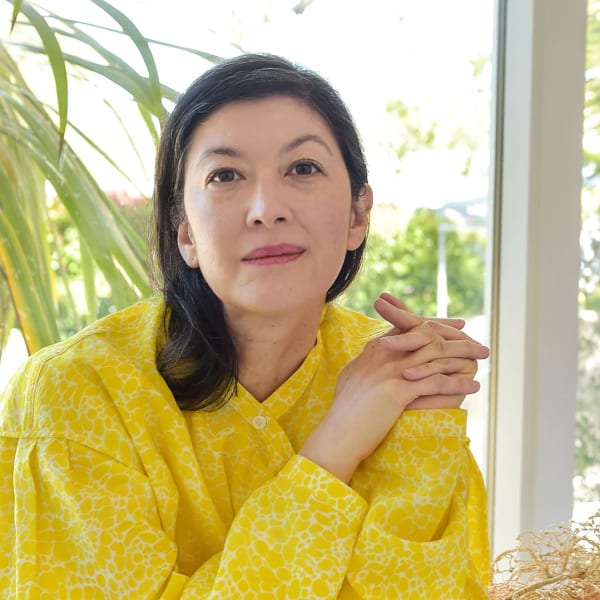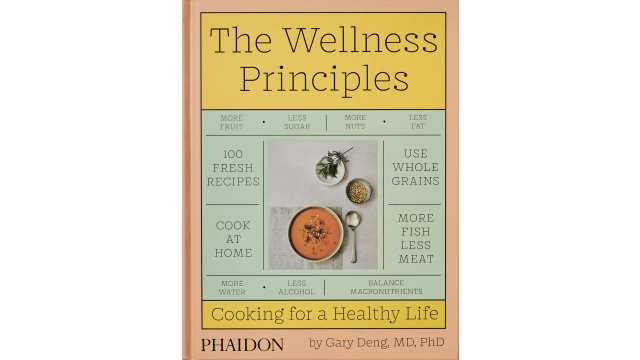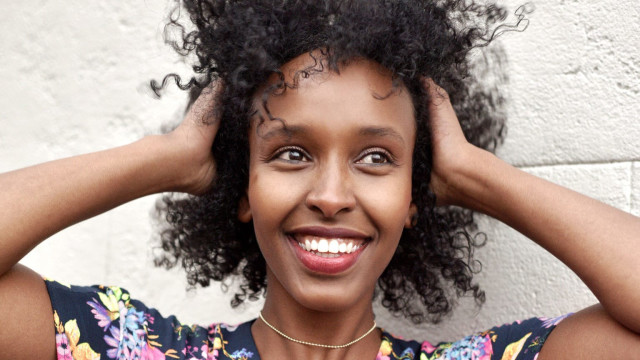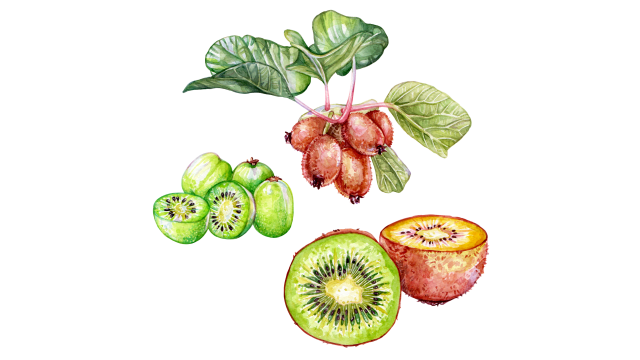Q&A with Dr. Gary Deng

Dr. Gary Deng is the medical director of integrative medicine at Memorial Sloan Kettering Cancer Center in New York, where he has pioneered a program based on a holistic approach to health and wellbeing. Working with cancer patients during treatment and recovery, Dr. Deng combines a scientific and medical perspective with global philosophies of self-care.
“I coach patients about diet, exercise, stress management, sleep, good social relationships, how to find meaning and joy in life,” he said in a recent phone conversation. “These are the six pillars of health.” He has spent countless hours talking with patients about the link between what they eat and their health. “Patients tell me, ‘When we talk about health and diet, I know the principles. But how do I do apply these principles? I need something specific.’”
So, Dr. Deng wrote a cookbook, The Wellness Principles: Cooking for a Healthy Life — with 100 simple recipes — the result of a passion for home cooking and years of experimentation.
“In clinical visits, I spend a third of the time focusing on diet,” he said. “First, we do a patient intake and cover the six pillars of health, we ask them about this, to see what is going well and what isn’t. For each patient it’s different, but on average we spend a third of the time on diet, another third on stress. Everyone has stressors. The other third on other things. Diet is the most common, because there is universal interest and it’s something you can easily address. We also emphasize, when you eat healthy, your whole family eats healthy. Microhabits are formed at a young age.”
Roundglass: What inspired you to start cooking?
Dr. Deng: When I was young, I read a Chinese novel about a connoisseur of food in Shanghai. It contained a lot of detail about how you make a dish delicious but also ceremonial — how you start eating it, how you appreciate it. In other words, mindful eating. The mind and body are connected very tightly. When we’re eating, we’re not just pumping nutrients into our bodies. In that case, we can just get an IV. There’s texture, appreciation of flavor, visual stimulation, all these are part of a healthy eating process. How you appreciate food, how you can be thankful, how you appreciate it. That just left a strong impression on me that lasted.
Over time, because I work in this field, I realized home-cooked food is healthiest. At most restaurants or take-out, you don’t know what they put in their food, you don’t know the process, or the quality of ingredients. Home cooking is the best. The challenge is we don’t have time. My job is very busy. So what I did is kind of experiment. So the book is an accumulation of 10 to 15 years of experiments. I have to make things quickly, so I made the recipes simple — simplified without compromising. Or the other way is sometimes I cook double — cook for dinner and for lunch. A two-week menu in the back of the book lays out how you can make two weeks of meals without much repetition and also save time. Tackling this problem we all have.
RG: Do you think that what we eat can address many of our health issues?
Dr. Deng: If you look at disease in modern society, about 60% of common diseases — diabetes, heart disease, stroke, arthritis, gastric reflex, digestive conditions — all are related to diet. Uterine cancer — there is seven times more risk if you’re obese than for people who are not. Where does obesity come from? From our diet. We eat artificial, industrial, nutrient-poor food. Calorie-rich, nutrient-poor, simple macronutrients. We need micronutrients that have hundreds of phytochemicals. This relates to the importance of complexity in our diet. We can’t eat just broccoli.
RG: We can’t?!
Dr. Deng: Broccoli is great. It probably has a dozen micronutrients. But add Brussels sprouts, arugula, you’ll see they don’t overlap. Kale, collards. They all have unique nutrients. Best to make your diet more diverse, very diverse. I think that’s underemphasized by a lot of nutritional advice. Variety and complexity are underappreciated.
Same with berries — strawberries, blueberries, raspberries, blackberries. All these different colorful fruits have a diverse nutritional profile. And diverse fiber for a diverse microbiome. This helps our digestion but not only our digestion.
RG: How so? What else can a diverse microbiome do for us?
Dr. Deng: In a study published in Science, mice with melanoma were treated with a certain immunotherapy. When they fed the mice a mix of probioitics, the immunotherapy worked twice as well. Other microbes in our gut also influence immunotherapy. We don’t know how to fine-tune that. If you eat a diverse diet with a lot of different fibers, you’ll have a better response. This has been confirmed in cancer patients. Cancer patients who eat a lot of fiber —immunotherapy works better. In treatment, the drug is just one part of the treatment. What we do with our bodies also influences outcomes. And not just how we treat our body in prevention but also in treatment.
RG: How have you incorporated complexity into your cooking?
Dr. Deng: By experimenting, learning from other people. You have to have passion, you have to love it. If you love it, you’ll get better. I go to cooking school when I travel. When I was in Peru, I went to Peruvian cooking school. When I was in Japan, I went to cooking classes for sushi, vegan monk food. Same when I was in other places. Thailand. “What’s the secret? What makes Thai food Thai.” Indian cooking school in India too. I learned a lot from diverse cultures. In the book, you’ll see the dishes come from all over the world. So, I think that we can learn from all the cultures, enrich our diet, provide variety and complexity.
I think the secret is grocery shopping. Instead of going to the grocery store and buying a lot of a few items — big bags of oranges, apples, tomatoes — buy a little bit of a lot of items. Strawberries, blueberries, peaches, cucumber, tomatoes, lettuce, a bag of arugula. When you shop like this and stock your refrigerator and pantry like this, they’re in front of you. They make for a diverse, complex diet. And you don’t spend more time in the grocery store shopping for a little bit of everything.
RG: What do you do about cravings, maybe for sweets?
Dr. Deng: I think I’m just lucky. I don’t crave sugar. I like food that’s very savory.
In my practice, I talk about how to beat sugar cravings. First of all, sugar craving is just like any other kind of craving, and so the mind has a lot of to do with that. A lot of patients eat a lot of sugar under stress. Stress produces cortisol, and cortisol makes your body crave sugar. Work on the mind. If you want to change people’s diet, you have to change their mind first. Reducing stress helps. Also reduces other general cravings, and then they don’t crave cigarettes, alcohol. If you look at the neuroscience, it’s the same for sugar.
Do a lot of meditation, mindfulness, always in peace, calm — you won’t want external strong stimulation to make you feel alive. You will find all these cravings will be less intense. The patient doesn’t care about sugar anymore, they’re more in peace, at peace with themselves, at peace in the world. It means less craving for anything.
The second layer is in the cooking process, in a fundamental way. How do you use less sugar? If you add a little bit of salt, a little bit of sour taste, the same amount of sugar tastes a lot sweeter.
Experiment — put 1 gram of sugar in a cup of water. Add a drop of vinegar and a pinch of salt. In another cup, add just the sugar. Do a blind taste. Oh, this one tastes sweeter than the other one but with the same amount of sugar. It’s perception in the brain. With a lot of sugar, salt, oil, anyone can make food taste good. It’s too much. But if you combine the right ingredients, you don’t have to use a lot of sugar and salt.
For dessert, I use lots of nuts, a little honey, real fruit. Desserts do not have to have a lot of sugar.
RG: A chapter in "The Wellness Principles" is devoted to breakfast. Why focus on breakfast?
Dr. Deng: Studies show if you eat the same calories in a day, it’s better to eat more at breakfast than dinner. Timing is important. It’s a cliché, but it’s true. “Eat breakfast like a king, lunch like a prince, eat dinner like a beggar.” Large breakfast, large lunch, small dinner. And not a bagel with cream cheese. Or doughnut with coffee. I want to change that. Yogurt, all kinds of different grains — oat, kasha, millet, barley, farro, quinoa. In our modern society, we’re only eating oatmeal for breakfast. Remember complexity with diet. Each of these grains has unique nutrients.
So for each dish I know how to pair it with other things: carbohydrates and fiber, pair them with protein. Eggs with maybe a bowl of mixed berries and apple. Half fruit, quarter protein, quarter carbohydrate. Toast with eggs — that is just protein and carb. You need to add more fruit to your breakfast.
Key Takeaways
- The good doctor on balanced nutrition.
- Explore scientific global self-care ideas.
- Healthy eating micro habits start young.







